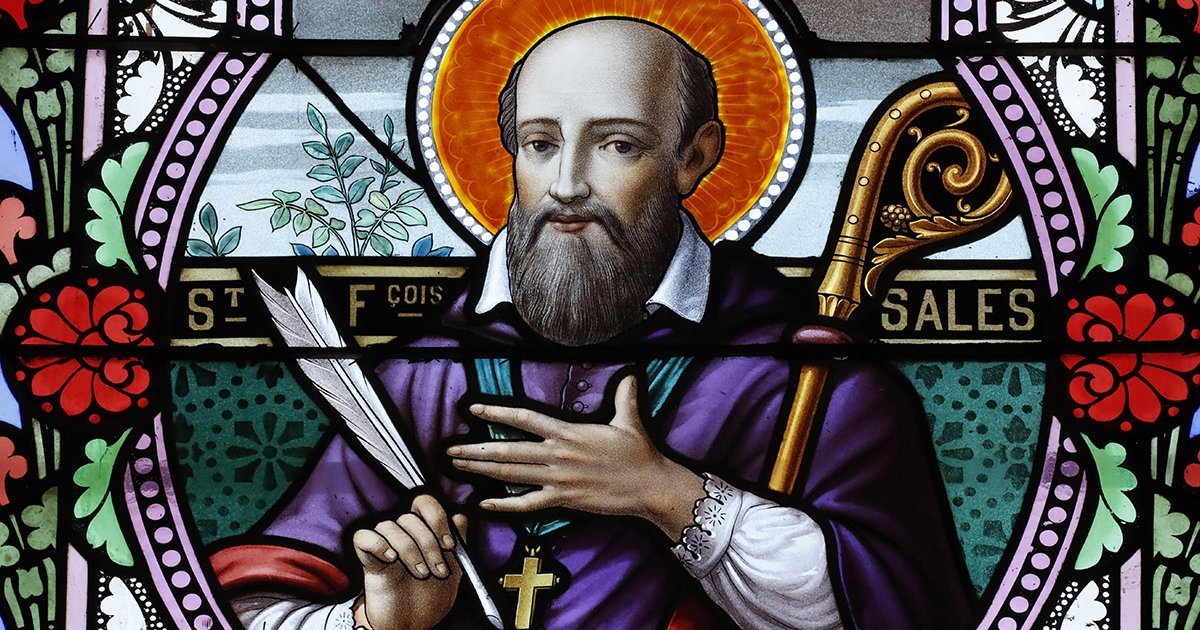We will never stop admiring all that this holy bishop brought to the Church, but also to France – although he was a Savoyard and never wanted to change the diocese, to which he considered himself married, and despite the insistence of King Henry IV who called him a “bishops’ phoenix”.
Spiritual master, adviser to princes, craftsman of the mystical renaissance of the 17th centurye century, zealous missionary in a time gained by the reformed heresy, true pastor inspired by the Council of Trent for the formation of priests, insisting on the centrality of the Eucharist – he imported from Italy the practice of the Forty-Hours of Eucharistic adoration as a tool of evangelization… In all, he was a model bishop according to the spirit of the Catholic and Roman Reformation, tracing a path in which all those in France who resisted Gallicanism and to Jansenism. We also begin to dream of what would have happened if he had retained the spiritual direction of Mother Angélique Arnauld, Abbess of Port-Royal and center of Jansenism… The course of history would have been changed!
sacred eloquence
By his pen and his eloquence, through his numerous works and letters, written in a noble and flowery language, this Doctor of Divine Love knew how to make the devotion “attractive”, as he said. By bequeathing to us the bases of the spirituality of the Sacred Heart of Jesus – which will be confirmed 51 years after his death by the apparitions of Christ to a nun of his order of the Visitation, Saint Margaret Mary –; but also those of abandonment to divine Providence and of the spirit of childhood, which Saint Thérèse of Lisieux would masterfully develop.
In his Introduction to the Devout Life, a major work with more than a thousand reissues to date, the holy bishop of Geneva had encouraged, long before Vatican II, the desire for holiness among the laity, at a time when it was believed to be reserved for religious. He thus wrote that “it is an error and even a heresy to want to banish the devout life [la vie spirituelle] of the company of soldiers, of the craftsmen’s shop, of the court of princes, of the household of married people. (…) Wherever we are, we can and must aspire to the perfect life. » But beware: this sweet – with a sweetness acquired in an incessant fight against himself – was not a lukewarm. The means of this perfect life accessible to all, he advocated it in a flexible and firm manner at the same time, through the “small steps” and “little virtues” like humility and patience, which everyone can practice, but never stop. Because the goal was clear and not cheap: to live “with generous and magnificent thoughts that keep you attached to this eternity” !
From there comes in him this moral and supernatural balance (1) which makes the strong and the saints, and which we need so much today, with the sense of friendship, in a world where many souls are confused and isolated.
Today, drawing inspiration from Saint Francis de Sales, it remains to write a spirituality adapted to the XXIe century for the laity, those who are on the front line in many sectors of society – the family, the company, the school, or even the media. In order, as he already advocated in his century, to “to find springs of sweet piety amidst the bitter waves of this century”.
(1) supernatural balance,
ed. Emmanuel Vitte, 1941.

